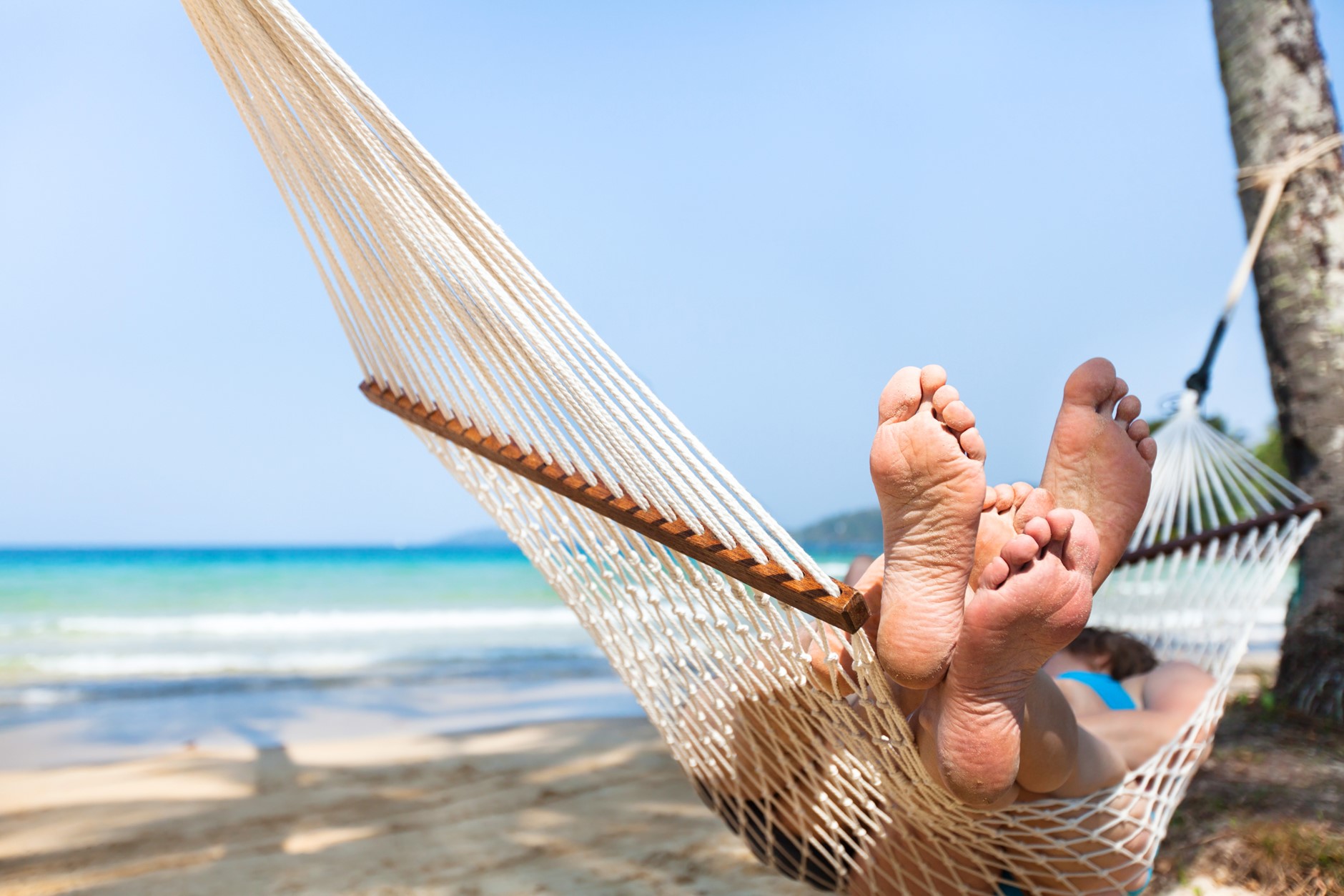New Year, New Terms, New Hope: Things that Might Matter in 2023
What’s in a Name?

Staycation, bleisure, flashpacking, and glamping. We have become accustomed to our language being mangled, largely by the media and companies trying to achieve headlines for what sounds like a new type of tourism product.
Purists balk at this linguistic sabotage. But language is dynamic and, while we may wince, some such neologisms are actually quite expressive ways of describing tourism behaviours that have been around for a long time, but which might recently have increased in popularity.
Importantly though, they generally define a type of tourism by traveller motive. And getting inside travellers’ heads is the starting point of all destination marketing. So, where these hybrid expressions represent a changing trend, they do have some utility for destination marketers and tourism operators. Here are a few, which reflect emerging trends, plus some more familiar concepts, which are likely to affect how people travel in 2023.
Digital Nomads and Half-Tourists
These are people who can work from home and chose to do so partly on holiday, often with their family. They stay in hotels or rent a place for several weeks or months. A more conducive atmosphere to combining work and family life, particularly in the school holidays. Some warmer countries even claim northern hemisphere ‘half-tourists’ can cut their overall living costs purely from what they save on heating bills by relocating for the winter. 

Greece was one of the first countries to offer ‘digital nomad’ visas in an attempt to attract these potentially mobile workers, and around fifty other other countries have followed suit, from Namibia to Spain, Malaysia to Costa Rica and Malta to Montserrat. Clearly good communications and fast wi-fi are a sine qua non, as is accommodation that is both comfortable to relax in and efficient to work in.
Revenge Tourism
After two years of stop-start lockdown, many people are just wanting to get away. ‘Revenge tourism’ suggests destination is irrelevant. But it isn’t. People will still focus on places they’ve always wanted to go, are familiar with, feel safe in, which are affordable. So, don’t make the mistake of thinking quality and service will be less important than before. ‘Revenge tourism’ merely means people will behave as if they’ve just been let off the lead and someone’s left the gate open.

Globally, visitor numbers will grow back towards their 2019 peak, but will not fully reach it in 2023. A WTTC/Skyscanner global report suggested 82% of travellers are planning to take more or the same number of trips abroad in 2023 compared to 2022.Similarly, UNWTO predicts global international tourist arrivals could reach upwards of 80% of pre-pandemic levels this year
That said, this will vary by geography, demographics, and attitudes. A recent CAA survey found COVID remains a concern amongst 38% of those aged 55 or over in the UK – a significant travel market, particularly out-of-season. North Americans are more likely to stay closer to home, travellers from Europe, the Middle East and Africa have already outgrown their 2019 numbers, while those in Asia-Pacific are almost back to 2019 levels.
Nothing-cation
 For those who do take advantage of the open gate, an Expedia survey in the USA found warm weather and relaxation are the main appeals for 96% of those surveyed. 62% said “doing nothing” was their favourite part of a vacation, almost all of whom considered this time well spent. These Homer Simpsons may not offer a huge market for Europe, but they do underline the importance generally of relaxation as part of a holiday. We’re not all culture vultures wanting to visit three cathedrals and five museums a day. Time to ‘chillax’ needs to be built in. However, I don’t expect Expedia’s ‘nothing-cation’ neologism to enter the travel lexicon or get legs beyond the PR achieved for this survey. US travellers to Europe are much more Phileas Fogg than Homer Simpson: culturally inquisitive and active, rather than deckchair-dwellers.
For those who do take advantage of the open gate, an Expedia survey in the USA found warm weather and relaxation are the main appeals for 96% of those surveyed. 62% said “doing nothing” was their favourite part of a vacation, almost all of whom considered this time well spent. These Homer Simpsons may not offer a huge market for Europe, but they do underline the importance generally of relaxation as part of a holiday. We’re not all culture vultures wanting to visit three cathedrals and five museums a day. Time to ‘chillax’ needs to be built in. However, I don’t expect Expedia’s ‘nothing-cation’ neologism to enter the travel lexicon or get legs beyond the PR achieved for this survey. US travellers to Europe are much more Phileas Fogg than Homer Simpson: culturally inquisitive and active, rather than deckchair-dwellers.Three-Generational Tourism
Much commented on during the pandemic, this is a reaction to being unable to see family (and friends) for too long. Accommodation, and particularly self-catering establishments, with enough rooms to accommodate grandparents, parents, and grandchildren who want to get together for a week will still find a ready market – at least this year!
The China Conundrum
Having let an almost completely incarcerated population off the lead after two long years, China will experience ‘revenge travel’ with knobs on. But will they travel abroad? And will they travel to Europe in the numbers we have been used to seeing?

Domestic travel, to see family they haven’t seen for almost three years, will be the priority. This will be followed by intra-Asian travel, to see friends, family, do business, study, and holiday. It seems likely there will be a resurgence towards long-haul travel, including Europe, too. But I suspect this will be slower, lower volume, and, in the next couple of years at least, even more limited to those with higher incomes and positions, who will nevertheless be even more price-sensitive, because of high costs in Europe.
Given talk of a reheated Cold War between China and the west by western politicians and media, it would not be surprising if the Chinese thirst for leisure travel to the west and western fashion goods were reduced from its pre-pandemic proportions. And, should the nightmare scenario of China invading Taiwan occur while the eyes of the world are focused on Ukraine, the game’s a bogey, not just for Chinese outbound tourism, but for us all. Fingers crossed economic logic trumps territorial ambition (which it didn’t with Putin). The stakes don’t get much higher than when world powers play chicken on the geopolitical pitch.
Staff, Supply Chain, and Service
Staff recruitment and retention difficulties have been well documented since the pandemic, not just in the UK, but also in Europe and the USA. A mix of Brexit, the demographic time bomb leading to widespread early retirement, and a backlog of people signed off sick since COVID, have created a perfect storm. This, plus the appeal of higher-paying, non-shift work in other sectors, has made it hard to find staff, particularly in hospitality and retail.
Small businesses have gone bust and remote hotels and restaurants have often resorted to shorter opening hours and fewer days to stay afloat. Sadly, the winners are more likely to be the multiples, who can ride out the storm and, in bigger towns, snap up bargain businesses that have gone bust. We will probably see some smaller independent hotels in rural areas change their business model to more of a Travelodge/self-catering, bed-only basis, in an attempt to survive. Providing a food service and finding, retaining, and paying a decent chef will, sadly, be too much for some smaller hotels in this climate.

Supply chain shortages – from certain foods to materials – should be remedied within the year, especially as the Chinese economy cranks up again. But that could be too late for some smaller businesses, which differentiate themselves on their quality product and outstanding service.
Given the staff and supply chain difficulties, we are likely to see a general decline in service standards, as hospitality businesses struggle to recruit, and may be reluctant to invest in training, staff who then become easy targets for poaching by other slightly higher-paying businesses and sectors. Reduced service levels combined with higher costs mean poorer value for money. And this risks reducing the UK’s competitiveness in relation to other, particularly short-haul, destinations. Offering value for money, even if for a reduced range of services, has probably never been more important.
Cost Concerns
Only an opulent oligarch can be unaware of the impact of inflation on purchasing behaviour, following the Russian invasion of Ukraine and consequent energy price increases, which was compounded by the Truss-Kwarteng budget experiment. But the good news is travel still remains a priority, even if people have to cut their cloth or travel smarter. 

This is partly reflected in an increased propensity amongst Brits towards all-inclusive holidays: up by 5 percentage points to 52% compared to 47% in 2022, according to a Travel Weekly-Service Science survey at the end of last year. Hardly surprising when you consider overseas holiday package prices have risen by an average of 19%, according to a recent Which report, with Easter airfares up by 51%, but by a whopping 71% to Italy and Greece. The relatively positive news is that UK hotel rates for 3–4 star hotels have risen at a lower rate (+19%) than international hotel rates for 2023 (+23%). Hardly a silver lining, but nevertheless a sliver of potential reassurance about UK competitiveness.
A recent Marriott survey of 14,000 travellers in Europe and the Middle East indicated 42% of Brits plan to travel at different times of the year to get better value; 28% say they will opt for a less expensive destination; and 27% will opt for cheaper accommodation. This will also impact the High Street, with 35% saying they will make do with the clothes they wore on holiday last year. Holiday price was by far the most important consideration (71%), followed by cleanliness (60%), location (60%) and peace and quiet (30%). So, despite wearing last year’s clothes, people want to stay clean in a nice, quiet place. Standards can only be allowed to drop so far.
Conclusion
In many ways there is little new in these trends. Value for money, product quality, and service standards remain paramount. Travel remains a necessity rather than a luxury for those who can afford it. People still want to relax, explore new places, and hang out with familiar faces.
But more will do so with their extended family; some will stay longer where hybrid working permits them to be ‘half-tourists’; and concerns about health, safety, and hygiene will remain a noticeable hangover from the pandemic when considering destinations and places to stay.
The challenge for the hospitality industry is as it has always been, but writ larger then ever: finding and retaining suitably qualified staff and delivering the experience visitors expect at a price they can afford, which generates sufficient profit to enable them to stay in business. Oh…..and an ability not to be side-tracked by mangled marketingspeak and to see these mongrel word compounds for what they are: merely old wine in new bottles.

